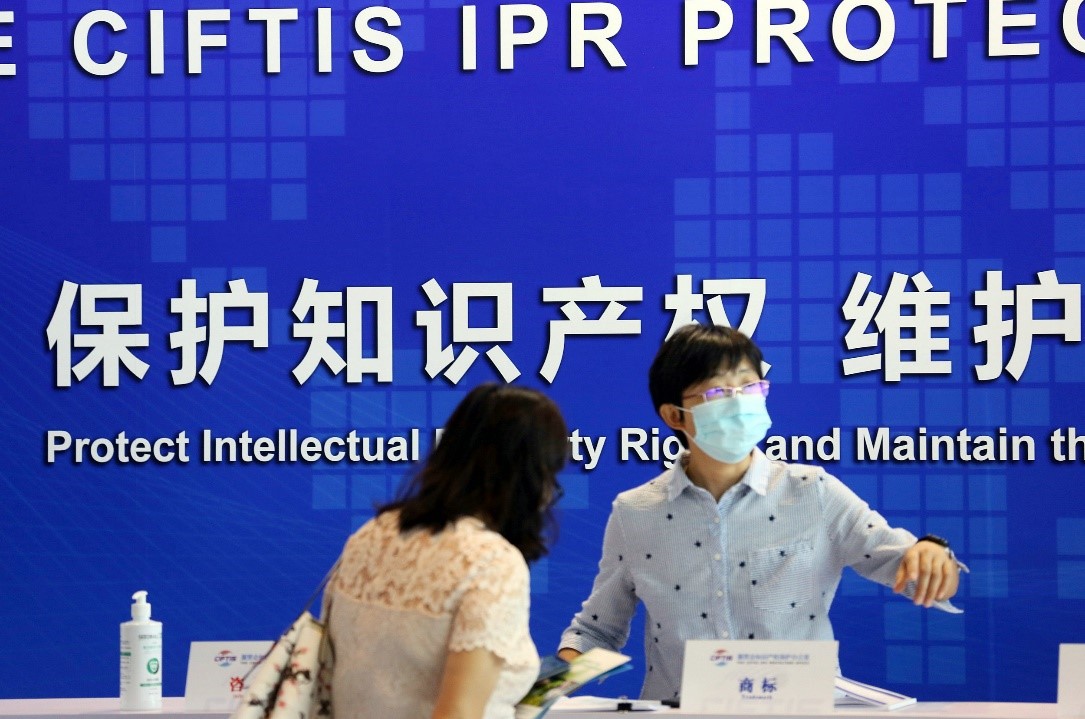A bright, promising new year for intellectual property rights holders


It's getting close to the new year now. Deep winter has arrived, and everyone is wrapped up warmly in down jackets, scarves and hats. 2020 has been a year of social distancing. People are looking forward to 2021 with hope. Recently, China has brought comprehensive methods to help intellectual property rights (IPR) holders with sufficient intellectual property service, which makes me very excited.
First of all, if I am an end user who wants to get access to IP information, where should I start? A good answer is the National IP Public Service Website launched by China National Intellectual Property Administration (CNIPA). The website really has a wow effect because the guidance is so clear.
For example, it has a column called the "IP Courses for the Public," which provides many free and up-to-date online courses to the general public. In mid-December, it held the online course on the Fourth Amendment of Chinese Patent Law, informing the general public of what's new in the patent law system. It also provides the concepts and application procedure of different types of intellectual property rights, such as patents, trademarks, geographical indications (GI) and integrated circuit layout designs.
Imagine if I live in a deep valley where I produce agricultural products, getting information for branding and advertising my products would be very important. Thus, I would feel rather fortunate to know where and how I can commercialize a GI.
GI is super useful in poverty alleviation. Helping the poor does not only mean financial aid or donation of goods; it also means offering access to knowledge and information.
The judicial protection of intellectual property rights has also grown and achieved great results. The Intellectual Property Court of the Supreme People's Court of China was established nearly two years ago, and up to December 23, it has accepted 5,104 cases, and 4,124 of them have already been ruled on. The court has a professional and specialized judicial team. Forty-two percent of them have doctorate degrees, 37 percent have an educational background in science and engineering and 21 percent have studied abroad. Electronic databases have also been built as resources to help the judges gather relevant information before making their ruling.
What we see now reflects the potential of the near future. Heading into 2021, we could see two trends.
First, intellectual property will be a functional instrument for the "dual circulation" of the economy.
Since China and the European Union agreed to cooperate on and protect GI in September 2020, the first batch of 100 GI products from each party has been protected in their respective territories. The sales model of "GI products, plus influencers livestreaming, plus e-commerce platforms" will boost the economy, especially if social distancing measures are still in place in the new year. An example of this sales model was seen in September when thousands of Nanjing Salted Ducks were sold during a livesteam that taught the audience how to cook these GI-protected ducks with ginger, garlic and anise in 15 minutes.
Second, judicial protection will be further strengthened next year.
IP courts at different levels are increasing the standard of professionalism of judges, adjudication rules and procedures. The Supreme People's Court of China has also created various learning instruments, such as the domestic and foreign IP case databases, to educate judges.
IPR holders' confidence is built case by case; it is also built by the predictability of judgment and judicial credibility. The unification of adjudication rules is also reflected in the recent annual report published by the Supreme People's Court of China, which serves as great material for my IP case study course next semester, where I will study them together with my students.
I am happy that IPR holders can be wrapped up snugly in both juridical and administrative protections and wish everyone a lovely new year where we will all enjoy good IP protection!
Zhang Nan, PhD, is a researcher at the College of Comparative Law, China University of Political Science and Law.

































